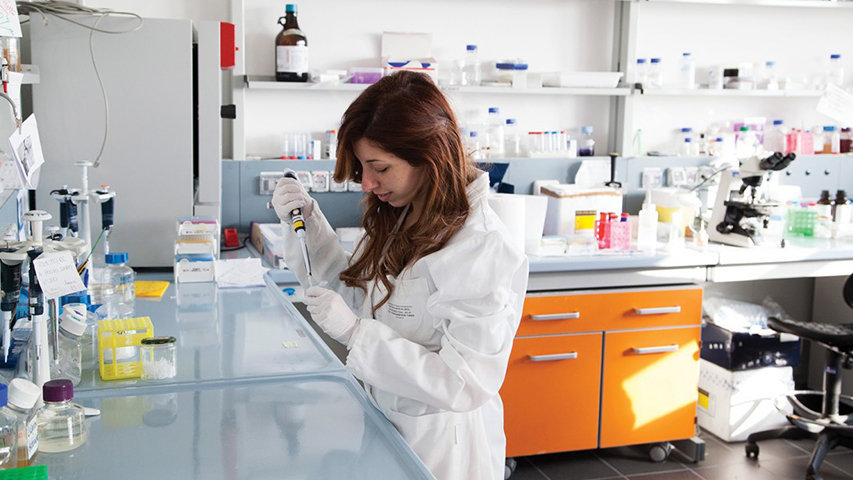
Gene-Editing for a Healthier and Enhanced Future
by Yash Saboo April 17 2018, 4:21 pm Estimated Reading Time: 2 mins, 43 secsOver the years we have significantly reduced deadly diseases such as tuberculosis, malaria, and HIV/AIDS. The incidence of polio has decreased by 99 percent, bringing the world to the verge of eradicating a major infectious disease, a feat humanity has accomplished only once before, with smallpox. However, a great deal of unnecessary suffering and inequity remains, which can be prevented with the help of technology.

Source : MIT Technology Review
In the past few years, scientists have revolutionized our ability to rewrite the genetic code for life, thanks to discovery and refinement of a molecular tool called CRISPR that allows us to edit sections of DNA. This tool can snip specific parts of genetic code out and replace them with new segments, eliminating diseases or giving creatures whole new traits. Another good thing about the tool is that while it was possible to edit DNA before CRISPR's discovery, this tool allows us to do so far more accurately and cheaply than ever before.
In a recent essay published in Foreign Affairs, Bill Gates described some of the ways genetic editing technologies have the potential to transform the world. Since the 1990s, he wrote, the world has made significant progress toward ending child mortality, fighting disease and hunger, and raising people out of poverty.
“Eliminating the most persistent diseases and causes of poverty will require scientific discovery and technological innovations,” Bill Gates wrote. “CRISPR makes the discovery and development of innovations much faster and more precise.”
CRISPR stands for Clustered Regularly Interspaced Short Palindromic Repeats; in genome engineering fields it refers to various systems that allow scientists to edit DNA at precise locations. The systems can also be used as a diagnostic tool.
The use of CRISPR and other gene editing technologies is the source of many philosophical debates about how much influence humans should impose on the natural world. In terms of disease prevention, Gates makes a case for how gene editing could eliminate malaria. The World Health Organization (WHO) reports that ‘88% of global cases and 90% of global deaths occurred in the African Region.’ The disease is carried by female mosquitoes that pass it on to humans when they bite.
Gene editing could allow for mosquitos to be genetically modified so that they only had male offspring or for their offspring to be completely sterile. This, of course, has the ability to wipe out an entire species that would have knock-on effects on the entire ecosystem. Biologists argue deliberately making a species extinct is unethical while others point to the fact that cases of malaria are already shrinking due to better access to medicine and prevention understanding.
Gene-editing technologies have the potential to create more efficient animals, for example, cows that produce more milk or chickens that produce eggs more quickly. Gates also presents data that show how women tend to raise and sell livestock goods in many parts of the world and argues that by increasing the production more money would be available for families which has big impacts on the wider community.
The Bill & Melinda Gates Foundation is already supporting a food gene-editing project that will see the development of a type of rice that can make its own energy through photosynthesis more efficiently.




-173X130.jpg)
-173X130.jpg)
-173X130.jpg)
-173X130.jpg)
-173X130.jpg)
-173X130.jpg)
-173X130.jpg)
-173X130.jpg)